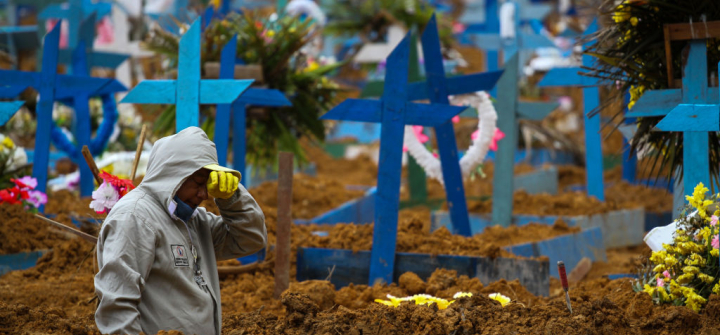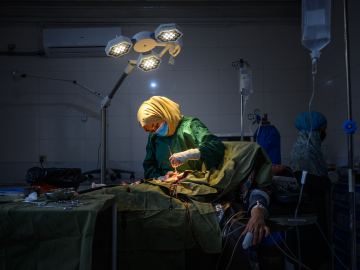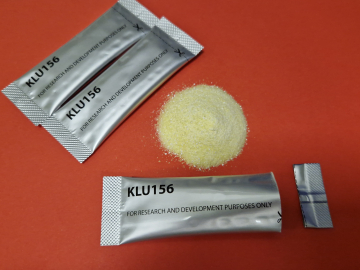Brazilian Physician on a Mission
Brazil, one of the hardest-hit nations throughout much of the pandemic, has clocked more than 10 million cases and over 250,000 deaths—a death toll second only to the US.
These startling numbers, and President Jair Bolsonaro’s well-documented dismissiveness of the virus, perhaps make it easy to forget Brazil’s well-established vaccination program and enviable universal health care system—something that the WHO wants for all member states by 2030, but most have not achieved.
But as the pandemic’s catastrophic toll in Brazil has shown, UHC isn’t everything.
After public health measures helped stem Brazil’s massive first wave of infections, vigilance faded to impatience with social strictures and, as cases surged, widespread resignation. At one point, the virus was so rampant in the Amazonian city of Manaus that some speculated it had reached herd immunity. By winter, Brazil’s ICUs were overflowing, as a new, more contagious variant discovered in Manaus began surfacing elsewhere across the globe.
Now, faced with a stalling vaccine rollout, Brazil serves as a cautionary tale that even the best universal health system isn’t immune to the conjoined forces of complacency, politicization, and misinformation—highlighting a disconnect between the public, and public health, says infectious disease physician Luana Araujo.
And she would know. From her home base in Belo Horizonte in the state of Minas Gerais, Araujo runs a website, Des-Infectando!, aimed at demystifying the science behind COVID-19 public health measures—from the basics of infectious disease, to how COVID-19 vaccines work.
The pandemic has made her a mainstay in Brazilian media, where she tries to deliver dispassionate, impartial insights. But in a hyper-politicized pandemic, viewers don’t always see it that way.
Some are grateful for her insights—others send death threats. “My first one was when I said hydroxychloroquine wouldn’t work,” based on the available evidence. Because Bolsonaro and former US President Trump had touted the treatment, she was accused of taking sides.
At times, she’s felt defeated in trying to deliver a science-focused message. But she also knows it isn’t merely willful ignorance driving public behavior.
“People don’t know who to trust,” she says. That undermines an “amazing” health system responsible for the care of 211 million people, where “everything is for free,” Araujo says.
The country’s landmark community health workforce—one of the largest in the world—has helped the country reduce under-5 mortality by 75% percent, maternal mortality by nearly 60% percent, and achieve near-total immunization coverage. Brazil was also the first middle-income country to offer free antiretroviral treatment to all people living with HIV.
But in this pandemic, “we left behind all the good things that our system has to offer”—overwhelming hospitals and rendering moot the principle of universal access, she says.
For one, the country did not invest in mass testing or contact tracing, and over a year into the pandemic, “now we have [ICUs] that are absolutely packed.”
“We are seeing entire families [die]. We are seeing kids who ask us to save their mom because their dad is already gone,” she says.
Yet, too many Brazilians are shirking restrictions at a time when they’re crucial to slow the spread of variants, says Araujo. She points to the whistleblower Instagram account “Brasil Fede COVID” (“Brazil Stinks of COVID”), which is flooded with posts showing flyers for large parties and crowds dancing maskless at crowded concerts.
These images are particularly troubling as new coronavirus variants take hold and the world is banking on vaccines to finally slow the devastation. In normal times, immunizations are an area where Brazil has a leg up.
“We are able to vaccinate millions of people in one day. [The program] is strong, it’s powerful, it’s free. And people here are used to getting vaccinated,” Araujo says.
Brazil has now approved 3 COVID-19 vaccines—Pfizer, Sinovac, and AstraZeneca—with more likely to come.
The problem is supply. Despite having the capacity to produce vaccines domestically at the prized Fiocruz biomedical facility, plans stalled on a deal to manufacture 30 million AstraZeneca vaccine doses in-country by the end of January, CNN reported. Active ingredients needed to make the jabs finally arrived early this month, according to Reuters. Brazil has now approved the Pfizer vaccine, but fraught negotiations leave a firm supply deal hanging in the balance.
As for the doses Brazil does have: “We are having a lot of issues with patient qualification … Since we have issues identifying the prioritized individuals, doses are being lost, and that is a real-life problem we cannot afford,” Araujo wrote in an email.
Then there’s trust, which Bolsonaro has done his bit to erode, gleefully joking about others getting vaccinated: “If you become an alligator, that’s your problem.” Allegations of corruption and reports of wealthy Brazilians seeking to privately secure doses, and of nurses performing “wind vaccinations” with empty syringes, add to concerns that the rollout is being manipulated.
As in many other countries, line-jumping underscores how a lack of unified public health messaging has obscured the bigger picture: that prioritizing certain groups for vaccines ultimately benefits everyone, not just the most vulnerable, says Araujo.
“When you have a lot of despair and no knowledge, despair always wins, emotion always wins,” she says.
Araujo aims to fill that knowledge gap with Des-Infectando!—a project she launched early in the pandemic as a series of Instagram posts while she was still studying for a Master of Public Health at the Johns Hopkins Bloomberg School of Public Health in Baltimore, Maryland.
“I had to dig on why is this not obvious to people… people do not know the difference between virus and bacteria. They do not know how diseases are spread,” she said. “The pandemic really highlighted that.”
But this was an issue Araujo began noticing the issue years ago. While working in the Amazonian state of Mato Groso to address another health crisis—syphilis in pregnant women—she found the need for strong health communication and community buy-in proved key.
And to make that happen, people must understand the “why” behind public health measures.
When it comes to COVID-19, that means helping the public understand the basic science that underpins guidance that is difficult to enforce en masse—like asking people to wear masks.
“I cannot say ‘from now on you will use a mask 24 hours a day.’ This is not a dictatorship.”
Join the 50,000+ subscribers in 170+ countries who rely on Global Health NOW summaries and exclusive articles for the latest public health news. Sign up for our free weekday enewsletter, and please share the link with friends and colleagues: https://www.globalhealthnow.org/subscribe
A man works in a mass grave at the cemetery Nossa Senhora Aparecida in Manaus, Brazil. May 19, 2020. Image: Lucas Silva/picture alliance/Getty





